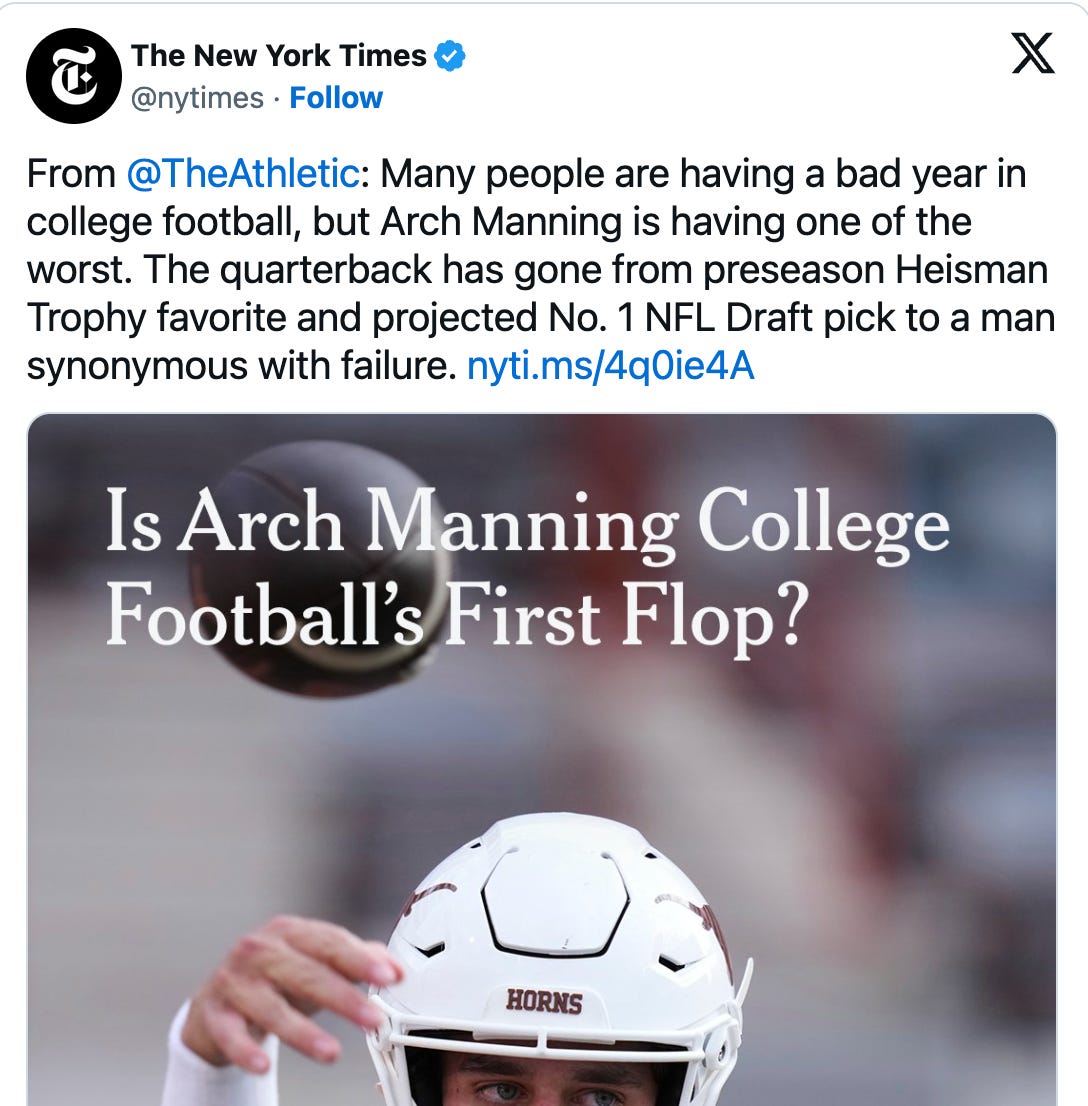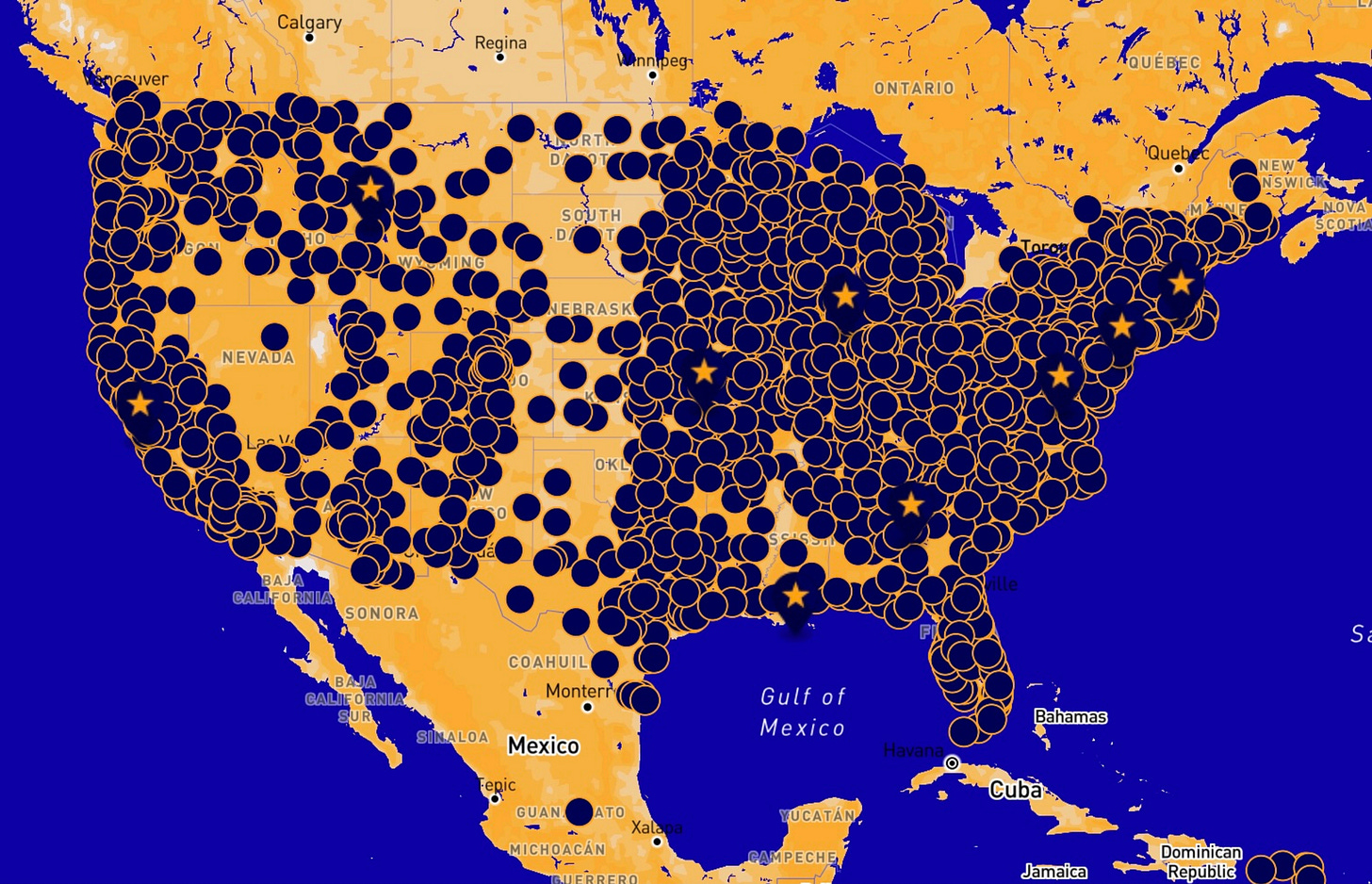Volume 5, Issue 94: Rough and Rowdy Ways
"I can see the history of the whole human race. It's all right there, it's carved into your face."
The book is out. People tend to like it, I think. I hope you have bought your copy. If you have not, there is no time like the present: Buy now. If you have already bought the book, you are encouraged to leave it a review on Goodreads or Amazon, or both. It helps.
The most commonly asked question I receive about this newsletter is “what’s with the headlines?” Since starting this newsletter in, yikes, May 2016, I have hewed to a very strict headline-naming convention. All headlines, since the beginning, have exclusively been the following:
Nirvana songs.
Woody Allen movies.
Wilco songs.
My favorite St. Louis Cardinals players.
Episode titles of “The Sopranos.”
Bob Dylan albums.
I have used this naming rubric for two reasons:
I like all of these things, and naming newsletters after them is a way to signal that (and remind myself of things I like).
They have nothing, or very little, to do with the content of the newsletter itself.
If there is one constant in my career of writing online, from the earliest days of Ironminds to The Black Table to Deadspin to New York to everything I still make today, it’s that I dislike headlines. I’m terrible at writing them, but that’s just a personal failing. What I dislike most about headlines is that they serve a different purpose, and do a different job, from what I am doing. My job is to write something entertaining, or persuasive, or funny, or passionate, or nuanced, or any of the things you try to make a piece do when you sit down to fill a page with words. When I write a piece, I imagine sitting down with the reader, maybe in a booth at the back of an old Irish pub, and having a long, smart conversation; each piece is meant to be a casual welcome—hey, come on in. But a headline’s job is to grab that person by the lapels, put your nose to that person’s face and scream at the top of your lungs—anything to take their attention away from what they were previously doing and focus it entirely on you. It doesn’t matter if the headline says something directly contradicting the piece, or purposely drains it of its the nuance and artistry; it only matters that it got you to look. It is the direct opposite of how I approach everything I do.
Headlines are not writing. They are sales.
I do not begrudge people who write headlines (and social media posts, essentially the same concept, only faster) this way: It is, after all, their job as well. They are better at it than I am, with years of best practices, tricks of the trade, and I understand that one of the reasons I’m able to do my job the way that I do it is because they are working to draw eyeballs to my work in the first place. This is in the grand tradition of anyone who makes anything. One person produces something; another person sells it. They work together. But they also work separately. I am appreciative of what they do. I am not sure I could do what I do if it weren’t for what they do. But it is not what I do.
So yeah: That’s why this newsletter’s headlines have always been like that. I don’t have a crack headline staff here, and I do not want one. You want to know what I have to say? The point I’m trying to make? The story I’m trying to tell?
Sorry: You’re gonna have to actually read the whole thing to find out.
I used to think this was not too much to ask, that, in my world, “reading the whole thing” was the point. I am not so sure anymore.
*******************
Last week, I found myself in an online kerfuffle. Actually, that’s not quite true. I did not find myself in one, and if I hadn’t had friends who spend far more time (any, really) on Twitter/X than I do tell me about it, I wouldn’t have known about it at all.
I wrote a piece, as part of my new gig writing about college football for The Athletic, about Texas quarterback Arch Manning, though it’s really more about the phenomenon of hype, and “flops,” and the very human sensation of taking quiet joy when someone has been told something is going to be great and it turns out to be very much not great. I got the idea for the piece while watching one of Manning’s endless Warby Parker commercials, which were still running the week after his worst game; they reminded me of how there were still Kamala Harris commercials playing the day after the election was over, like an echo from a distant past when you thought everything was going to work out, right before you learned it wouldn’t. The piece, I think, is very fair to Manning—it reminds the reader, on multiple occasions, that he is only 21 years old, that he has shown considerable talent, that he, like all of us, has plenty of room to grow and learn—while trying to make the larger point that in an age of NIL and college players being paid like professional ones, the protective halo we once put around our college athletes, they’re just kids, is gone: When you’re getting paid millions to be in advertisements on infinite rotation, you’re as fair game as everyone else is.
One can differ with this point—and I’m amenable to the argument that D.J. Uiagalelei should have been included in the piece, though I think he was several degrees less of a thing than Manning was and is—and everyone can respond to the piece however they wish, life’s a rich pageant, but I find it difficult to see how any reasonable person could read the piece itself and have their takeaway be, “this is a hit job on Arch Manning.”
I do, however, see how someone would only look at the way the story was sold on social media and in headlines and feel that way.
And this—not the piece, not anything I had personally said on social media, not even an actual out-of-context quote—is what set everything off. (You can learn about the whole thing the way that I did by reading this Awful Announcing post.)
Now, again: I didn’t know anything about this at all. I didn’t get any angry emails, no one sent me nasty Instagram DMs—because I don’t use Twitter, I missed the entire thing. (I did learn which of my friends still look at Twitter all the time though.) But a couple days later, I went back and sifted through what had happened. And it was really a simple as people yelling at a Twitter post. Very few people seemed to have read the piece at all, and of those who did, none of them reached out to me about it. It just became a entirely self-contained Twitter thing, never escaping containment; it was a bunch of people yelling into the sky. They were only talking to themselves. And it had nothing to do with the actual content of the piece. By the end, it seemed to have devolved into “The New York Times (where I don’t work) got some big-city NYC writer (where I don’t live) to call a 21-year-old kid a failure (which the piece doesn’t do).” Again: All of this would be obvious to anyone who read the piece at all. But they weren’t yelling about the piece. They were yelling at the social media post. Which I literally had nothing to do with.
Now, I have been in these sort of online kerfuffles before—many, many times. It has happened often enough that I don’t really sweat them anymore: My job is to write my piece, move on, write another one, and move on again. These things pass, every time; no one remembers, they just migrate over to the new thing to be mad about, and then the next. I am not writing for engagement, or clout, or social media prowess. I am fortunate enough to be paid for my writing, and I thus consider that my sole responsibility: Make good stuff, then go make more. If my editors are happy—and they have been—then I am happy.
But what was strange about this one—and perhaps a little alarming, in the long term—is that this kerfuffle had absolutely nothing to do with anything I had actually written. Back in 2018, I wrote a piece for New York magazine about Barstool Sports that so enraged Barstool founder Dave Portnoy—he was justifiably angry: I called him an asshole, because he is an asshole—that he sent his legion of Barstool readers, notoriously one of the rowdier mobs on the Internet, after me for weeks, imploring them to find something that would ruin my career. (All they ultimately found where three clearly labeled satirical pieces from The Black Table, which ended up being sort of a relief: I’ve always felt oddly vetted since then, like if that’s all they had, I can maybe run for Senate now.) That’s probably the most thorough online fisking I ever got, and as unpleasant as it was for a few days, it ended up being fine: Everybody, again, just moved onto something else, Portnoy kept his career, I kept mine, there ended up being a global pandemic, the world had plenty to keep itself occupied.
As nasty as some of the Barstool folks got, though, they were, in fact, responding to something I had written. It was fair game. They had a right to be mad! I had said their site was bad! It would be weird if they weren’t mad! I knew it might upset them when I wrote the piece, so I could hardly claim innocence or persecution. I wrote something. They didn’t like what I wrote. So they let me know. That’s how this works. That’s how this has always worked. It’s how it is supposed to.
But that is not what happened with the Manning piece at all. The response was not to a point I made, or to my writing style, or even just my stupid face. It was all responding to a headline on a social media post that I didn’t even make on a platform that I don’t even use. It was almost like a reflex—an involuntary motion. It was like I didn’t even need to write a piece at all.
And that might have been the scariest part. I understand that people read less than they used to, that they are obsessed with their screens, that reading comprehension has been largely replaced by people (and not just kids) scrolling mindlessly through video. I do not like this, but I am doing my best to make my peace with it.
What I do not understand is getting angry at air, the default Pavlovian response of assuming everything is just more grist for the outrage mill, to be, above all, publicly furious about a piece that you have not read. Every writer deals with people who don’t like their work. It is part of the deal; I’d be doing something wrong if everyone just nodded blankly and agreed with everything I wrote anyway. I’ve long learned not to think too much about how people react to anything I’ve written. You can’t believe the good reviews and you can’t believe the bad ones. You’ve gotta write this stuff your your editor, but most of all you’ve gotta write this stuff for yourself. No one could possibly be a tougher critic than me anyway.
But what do you do when people only react to what they believe you’ve written? Or want you to have written? When they, in the end, don’t really care what you said in the first place?
The answer, of course, is to ignore it and go about your business. But if people don’t need to read what you wrote to have an immediate emotional reaction to it, well, jeez, what’s the point of writing it at all? If they’re only talking to themselves … am I only talking to myself as well? Is anybody talking to anybody?
NO KINGS
Attending the last No Kings protest in June, while my son Wynn and I were out chasing storms and cheering on his Thunder, was one of the best things I’ve done all year: It’s energizing, and spiritually fulfilling, and perhaps most important, being out there makes you feel less alone and isolated: It’s a tangible, in-the-flesh reminder that most people do not want this madness, that this is all very bad, that you are not going crazy.
I sadly will be unable to be out there today. Football Saturdays in Athens, specifically mammoth ones like today, are all-encompassing affairs: There are obligations on days like today that are months in the making. But there’s every reason to think today’s protests will be even bigger than June’s were, and remember, June’s featured nearly 2 percent of the entire American population on the streets. (Historical sociologists have found that the magic percentage of a population to “ensure serious political change” is 3.5 percent. I recommend reading that piece right here, it’s fascinating.)
If you can get out, you should go: It will be good for your soul. There are more than 2,200 No Kings protests happening around the country, so there’s one absolutely near you. Here’s where you can find yours. I cannot endorse going enough. It’s good for all of us. But it’ll be good for you too.
Here is a numerical breakdown of all the things I wrote this week, in order of what I believe to be their quality.
The Mariners, and Fandom, Will Make You Cry, The Washington Post. This piece turned out really well, and it certainly helps that the Mariners won last night.
Are We Sure Penn State Is a Better Coaching Job Than Indiana? The Athletic. This one caused less of a kerfuffle, people must have actually read it.
MLB Playoff Rootability Rankings, New York. More Mariners love.
Guillermo del Toro Movies, Ranked, Vulture. Updated with Frankenstein.
This Week’s Power Rankings, MLB.com. It is much easier to do these when there are only four teams.
Friday’s MLB Postseason Preview, MLB.com. Every night with this! Here I previewed the most fun night of baseball in a long time.
Thursday’s MLB Postseason Preview. MLB.com. Nirvana albums, ranked!
Wednesday’s MLB Postseason Preview, MLB.com. Nevermind.
Tuesday’s MLB Postseason Preview, MLB.com. In Utero (very close, a virtual tie).
Monday’s MLB Postseason Preview, MLB.com. Bleach.
Sunday’s MLB Postseason Preview, MLB.com. Incesticide. I know, I should probably count the Unplugged.
PODCASTS
Grierson & Leitch, no show this week.
Morning Lineup, I did Thursday’s show.
Waitin’ Since Last Saturday, we reviewed the game against Auburn and previewed the game against Mississippi.
LONG STORY YOU SHOULD READ THIS MORNING … OF THE WEEK
“Resistance Is Cringe,” Quinta Jurecic, The Atlantic. Loved this argument in favor of full-throated, unembarrassed sincerity.
These organizers were people “who basically believed that there was such a thing as the rule of law, that there was such a thing as democracy,” Putnam told me, “and that these were things that were worth fighting for.” They were, in that sense, institutionalists—and therefore inherently opposed to MAGA’s devil-may-care desire to burn the place down.
Cringe “implies a kind of naïveté that so often gets coded as feminine,” wrote the New York Times columnist Lydia Polgreen, “a silly belief that human beings, through sincere effort, might actually improve themselves and the world.” Such a belief might seem uncool. But it can be a powerful tool with which to cut through the nihilism of Trump and those around him, which draws its power from its insincerity, its refusal to distinguish between truth and falsehood, its willingness to mock and degrade previously treasured beliefs. As one protest sign put it at a demonstration early in Trump’s second term: BE CRINGE. SHIT MATTERS.
Idealism helped motivate Trump’s opponents during his first term. But it has the potential to carry even more weight during his second, given how the president’s anti-democratic project is not as constrained as it was the first time around. As Levin of Indivisible told me, “The real enemy in an authoritarian breakthrough moment is nihilism and cynicism and fatalism.” This idea was a regular subject of the philosopher Hannah Arendt, who famously argued that totalitarian regimes depend on eroding their subjects’ sense of political possibility. Such governments, she wrote, aim not “to instill convictions but to destroy the capacity to form any.”
ONGOING LETTER-WRITING PROJECT!
This is your reminder that if you write me a letter and put it in the mail, I will respond to it with a letter of my own, and send that letter right to you! It really happens! Hundreds of satisfied customers!
Write me at:
Will Leitch
P.O. Box 48
Athens GA 30603
CURRENTLY LISTENING TO
“Born in the U.S.A. (Electric Nebraska),” Bruce Springsteen. I am absolutely the sort of middle-aged white guy who really can’t wait to hear the Electric Nebraska album. (Nebraska is my favorite Springsteen album and will hear every possible variation on it.) This is definitely the version of the song that will stop confusing your uncle (and Ronald Reagan) about the lyrics and the point of the song.
Be safe out there, everyone.
Best,
Will








I stood, chanted, and waved a sign in a torrential downpour at one of the very well-attended St. Louis protests yesterday and it never felt so incredible to be drenched to the bone.
1. In their defense, most people don't seem to understand that the author of the article don't write their own headlines. So it's a bonus that, I'm that whole brouhaha about Arch, I don't see The Author's name mentioned anywhere. They not only didn't read the article, they didn't even make it to the byline before the frothing began.
2. Though we already have two fine senators, I would happily keep you around as backup.
3. We spent two hours waving signs at passers-by, and then we went downtown on Game Day and voted. No better way to defend Democracy than to exercise it.